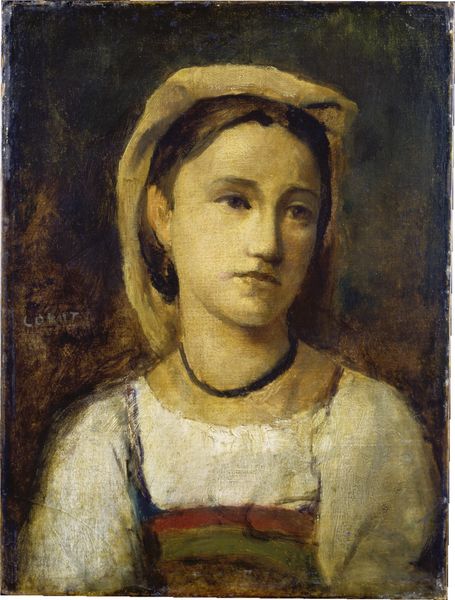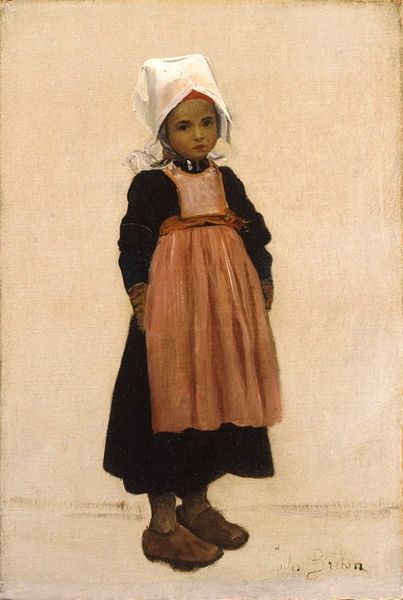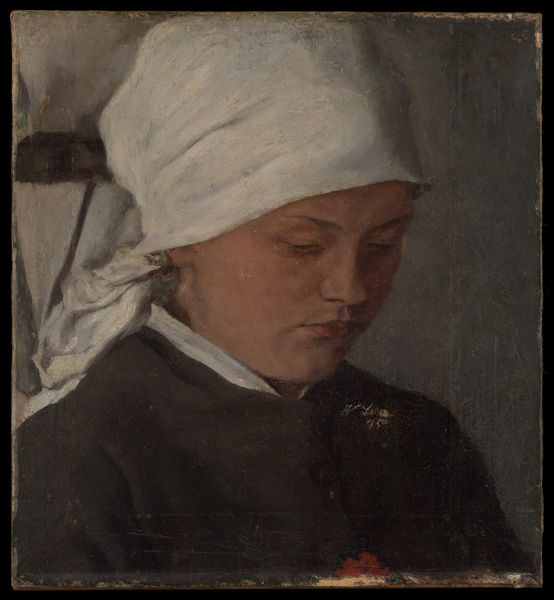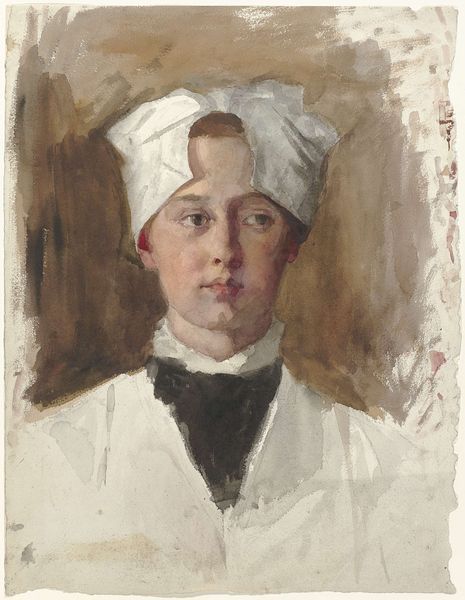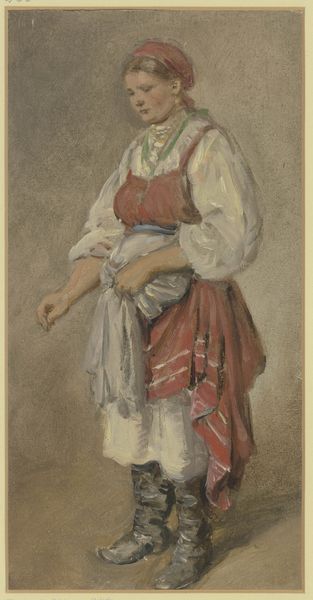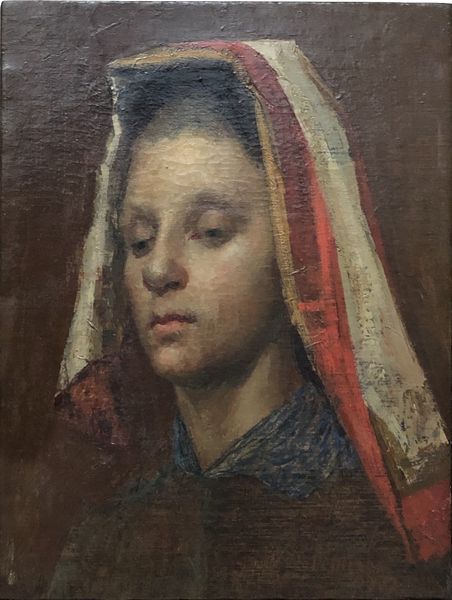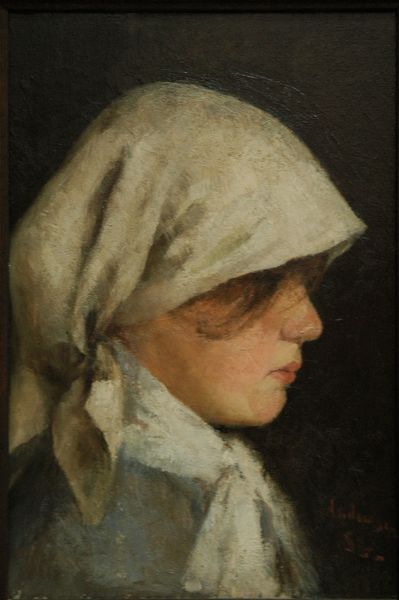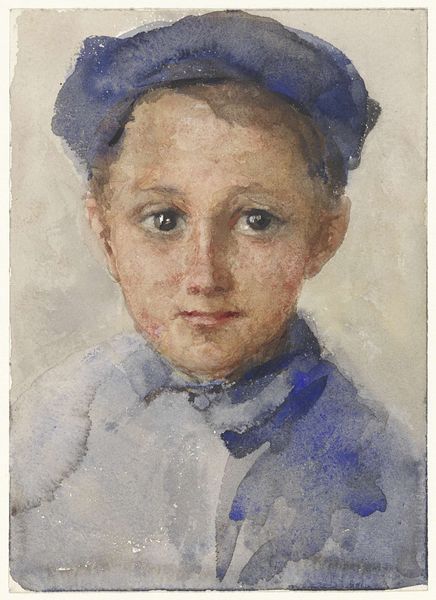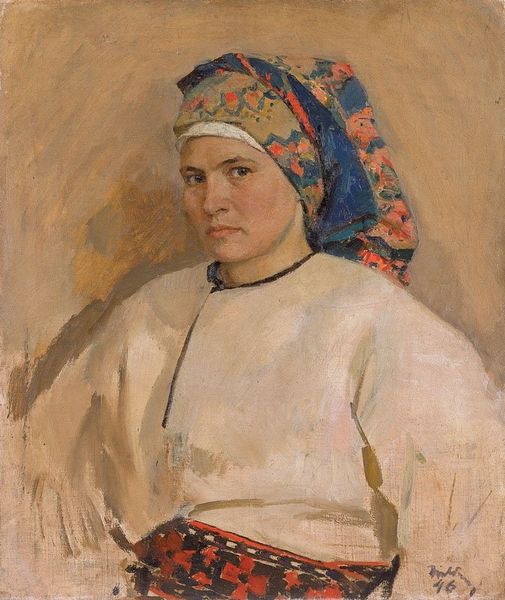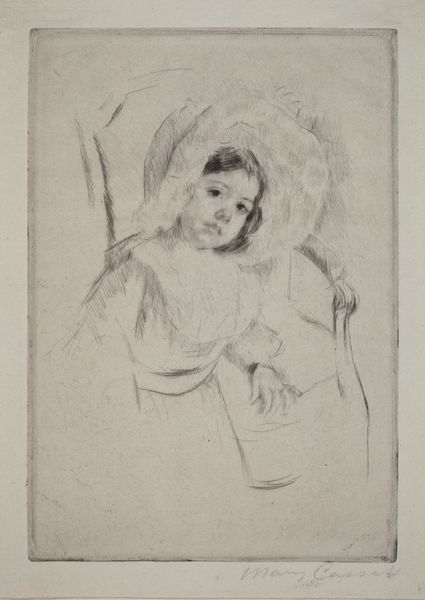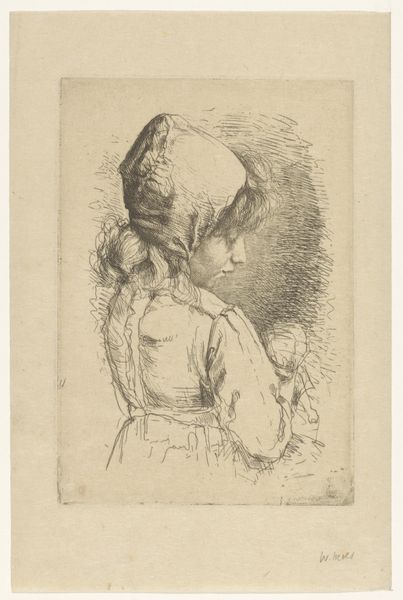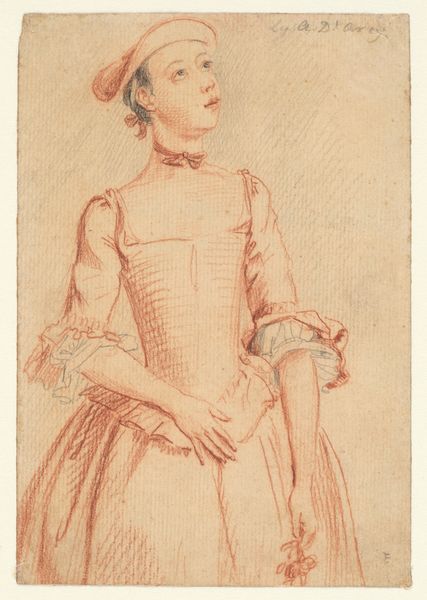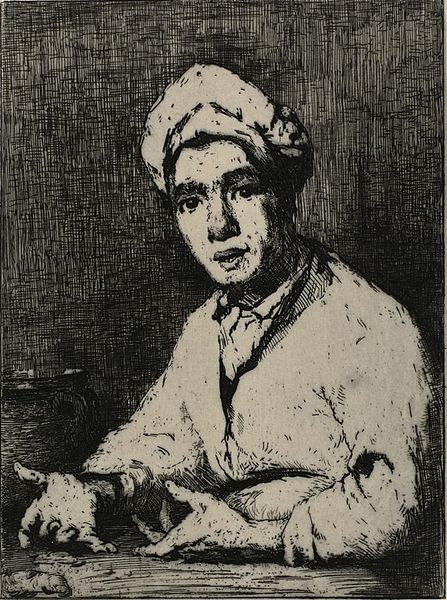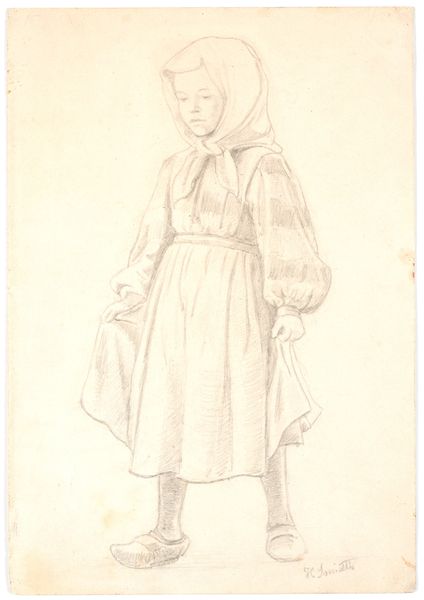
painting, oil-paint, impasto
#
portrait
#
painting
#
oil-paint
#
charcoal drawing
#
impasto
#
coloured pencil
#
portrait drawing
#
academic-art
#
portrait art
#
realism
Dimensions: 45.5 x 37.5 cm
Copyright: Public domain
Curator: Let's turn our attention to Jules Breton's "Head of a young Breton, study for Pardon," created in 1868. Breton, as many know, focused on rural life and peasantry during the 19th century, often portraying their customs and traditions. What strikes you initially about this oil-on-canvas work? Editor: She feels like a fleeting dream. Muted colours, soft brushstrokes… it’s as if the artist was trying to capture a memory before it faded entirely. It’s incredibly gentle. Curator: The subtlety is key. Breton's academic realism sought to idealize and simultaneously document peasant life. We must remember these "pardons" were religious festivals. This study shows us the detailed observations he made before incorporating elements into large-scale narrative paintings. He wanted to ensure ethnographic accuracy but through a certain rose-tinted lens. Editor: That lens! I see what you mean. The soft gaze...it feels romanticized, a longing rather than a raw depiction. Yet there is a palpable innocence. Like she is peering directly at us, without any artifice. Curator: Exactly. While we recognize this tendency toward idealization which appealed to the urban art market eager to consume representations of rural simplicity and piety, one can see the intense preparation that he put into portraying a specific regional identity. These "types" had to read correctly. Editor: And the colours – that soft white cap against her blushed skin? Beautifully done, even if a touch sentimental perhaps? I am now thinking about all the preparatory portraits, studies, and sketches created at that time; each hoping to evoke similar emotive themes through these types. Curator: I agree. Viewing “Head of a young Breton” not as the final painting but as one stepping stone in the machine of art creation lets us truly see Breton's academic style in action, his methods of ethnographic study on full display. Editor: True, the image invites a dialogue between romanticism and a genuine, although meticulously curated, reality. It hints at the complicated layers beneath rural idylls, perhaps inspiring curiosity and respect towards these communities.
Comments
No comments
Be the first to comment and join the conversation on the ultimate creative platform.
